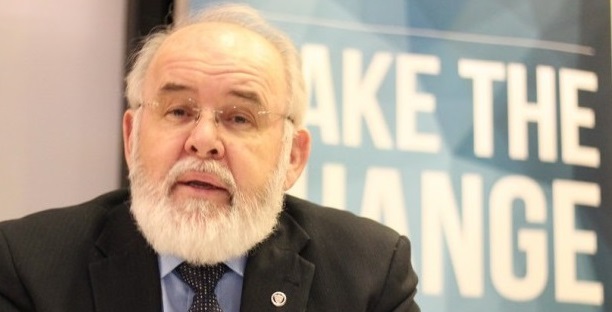Sinn Féin’s new party line on abortion does not reflect the views of ordinary voters, the Sinn Féin MP for Mid-Ulster has said.
Francie Molloy, who succeeded Martin McGuinness as MP for the area in 2013, said the policy adopted at the party’s Ard Fheis was both “progressive and hysterical”, and cautioned against the triumphalism of some who had campaigned for it. “I think it was hysterical, particularly by people gloating on the position,” he said, adding, “I saw a danger in it I did not like.”
Until the Ard Fheis, the party, which since 2015 has favoured the repeal of Ireland’s constitutional protections for unborn children, had held that abortion should be legal in cases of so-called ‘fatal foetal abnormalities’ and when pregnancies had arisen through rape and incest.
Grave danger
However, the party has now voted to also support allowing abortion in cases where “a woman’s life, health or mental health is at serious risk or in grave danger”. This is in practice a call to bring abortion law in Ireland in line with that in Britain, where over 97% of 2015’s more than 190,000 abortions took place on mental health grounds.
Speaking to The Irish News, Mr Molloy warned that the conference vote was out of step with ordinary constituents.
“It’s important to keep in touch with the grassroots and realise these decisions can be taken in isolation. It’s very easy to pass a motion in the heat of an ard fheis – it’s different when you are on doorsteps and people don’t see the logic for it,” he said, adding that the vote “does not reflect the view of the people on the ground”.
Opposing the change in party policy, Meath West TD Peadar Tóibín told the conference, with reference to the 1916 Proclamation: “The right to life is the primary human right. You cannot cherish all the children equally if you do not give the right to life to all the children.”
He appealed for party representatives to be allowed to vote with their conscience on the issue, but Sinn Féin deputy leader Mary Lou McDonald has said the party will not “cop out” by taking what she called the “a la carte” approach of Fianna Fáil and Fine Gael.


 Greg Daly
Greg Daly Francie Molloy, Sinn Fein MP, Mid-Ulster
Francie Molloy, Sinn Fein MP, Mid-Ulster 